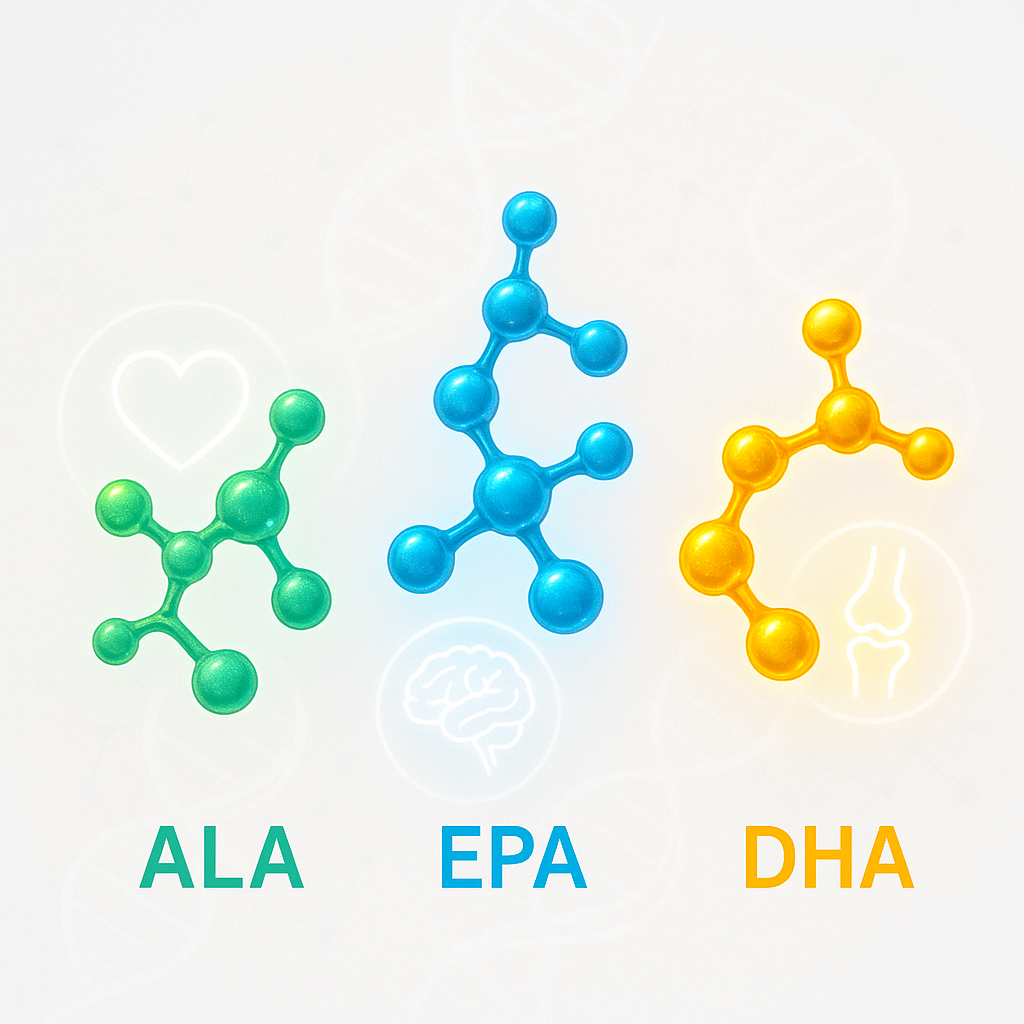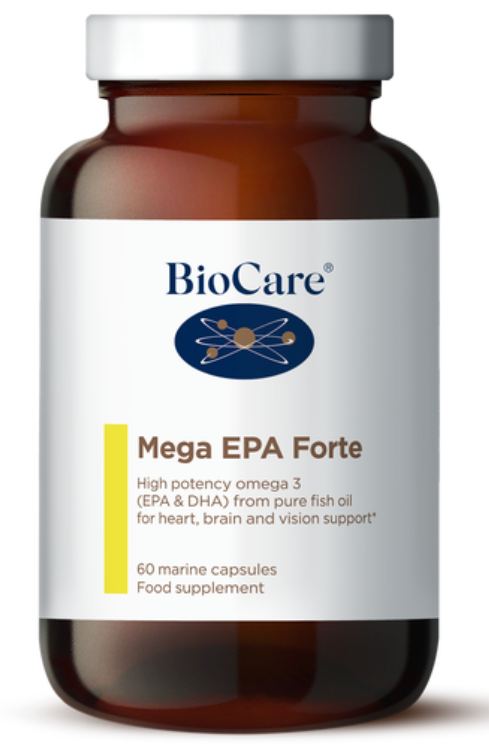Discovering the Powerful Role of Omega-3 Fatty Acids in Managing Inflammation Effectively
Delving into the Vital Functions of Omega-3 Fatty Acids

Omega-3 fatty acids are vital fats that are crucial for the support of numerous physiological functions within the human body. Since our bodies cannot produce these essential fats independently, it is imperative to obtain them from our diet or through supplements. The three main types of omega-3 fatty acids include ALA (alpha-linolenic acid), EPA (eicosapentaenoic acid), and DHA (docosahexaenoic acid). Each of these variants plays a significant role in promoting health, particularly by mitigating inflammation and enhancing brain health. Understanding how to optimise omega-3 intake is essential for managing inflammation effectively, making it crucial to grasp the fundamental roles these fatty acids play in our well-being.
Numerous studies have highlighted the profound influence of omega-3 fatty acids on overall health and wellness. These essential fats are known to significantly enhance cardiovascular health by lowering triglyceride levels, regulating blood pressure, and improving vascular function. Additionally, omega-3 fatty acids are fundamental for maintaining optimal brain function, with a positive impact on mood and cognitive abilities. When consumed in adequate amounts, omega-3s can lead to remarkable improvements in health outcomes, reinforcing their vital role in dietary recommendations worldwide.
Would you prefer to listen instead? Click below.
Exploring the Critical Importance of Inflammation in Holistic Health
Inflammation is a natural biological response that serves to protect the body against injury and infection. Acute inflammation presents with symptoms such as redness, swelling, and discomfort, which are all essential for the healing process. However, when inflammation becomes chronic, it can lead to an array of health complications, including heart disease, diabetes, and various autoimmune disorders. The link between chronic inflammation and the development of numerous diseases underscores the importance of addressing this issue through dietary changes, particularly by increasing the intake of omega-3 fatty acids.
Chronic inflammation often stems from lifestyle choices, including unhealthy dietary patterns, a lack of physical activity, and heightened stress levels. As we examine how to enhance omega-3 intake for effective inflammation reduction, it becomes evident that incorporating sufficient amounts of omega-3s can counteract the adverse effects of chronic inflammation. This is particularly relevant given the rising incidence of inflammatory diseases across the globe. By prioritising inflammation reduction through dietary changes, individuals can significantly enhance their long-term health outcomes.
Investigating How Omega-3 Fatty Acids Help Reduce Inflammation
Research has shown that omega-3 fatty acids possess powerful anti-inflammatory properties, allowing them to effectively lower levels of inflammatory markers within the body. They achieve this by inhibiting the synthesis of pro-inflammatory molecules, including cytokines and eicosanoids, thus dampening the inflammatory response. This mechanism is particularly beneficial for individuals suffering from chronic conditions like arthritis, where inflammation is a prevalent symptom.
The compelling evidence supporting the optimisation of omega-3 intake for reducing inflammation is substantial. Numerous studies indicate that individuals with higher levels of omega-3s in their bodies demonstrate decreased concentrations of C-reactive protein (CRP), a key marker of inflammation. This finding highlights the potential of omega-3 fatty acids to lower the risk of inflammatory diseases and improve overall well-being. Embracing dietary habits rich in omega-3s could yield significant public health benefits, especially in areas facing a high prevalence of inflammatory conditions.
Discovering Nutrient-Rich Foods Loaded with Omega-3 Fatty Acids

Integrating omega-3 fatty acids into your diet can be easily achieved through a variety of nutrient-rich food sources. Fatty fish such as salmon, mackerel, and sardines are among the richest sources of EPA and DHA. For those seeking plant-based options, flaxseeds, chia seeds, and walnuts provide ALA, which the body can convert into EPA and DHA, albeit at a less effective rate.
Responding to the growing consumer demand for omega-3 fatty acids, the food industry has started fortifying various products. Certain eggs, dairy items, and even juices are now enriched with omega-3s, making it easier for consumers to boost their intake. Additionally, algal oil, sourced from algae, is an excellent vegan option for obtaining EPA and DHA. This sustainable alternative to fish oil is becoming increasingly popular, particularly among environmentally conscious individuals.
Krill oil, derived from tiny crustaceans, also provides omega-3 fatty acids and is often considered more bioavailable than standard fish oil. This characteristic allows the body to absorb and utilise the omega-3s found in krill oil more effectively. When considering options for enhancing omega-3 intake for inflammation, focusing on the most suitable sources can help meet dietary needs effectively.
Uncovering the Extensive Health Benefits of Omega-3 Fatty Acids in Reducing Inflammation
<pRegular consumption of omega-3 fatty acids can yield numerous health benefits, especially for individuals dealing with inflammatory conditions. Research indicates that those who maintain higher levels of omega-3s in their diets experience a reduction in symptoms of arthritis and other inflammatory diseases, leading to an improved quality of life. Omega-3 fatty acids are also associated with enhanced cardiovascular health, improved cognitive function, and better mood regulation.
The advantages of omega-3 fatty acids extend beyond inflammation management. They play an essential role in supporting brain health, with studies suggesting that adequate omega-3 intake may lower the risk of cognitive decline and various mental health disorders. Understanding the wide-ranging benefits of omega-3s empowers individuals to make informed dietary choices that prioritize their overall health and well-being. As we explore how to optimize omega-3 intake for inflammation, it is crucial to consider both the quantity and quality of the omega-3 sources consumed.
Essential Guidelines for Daily Omega-3 Fatty Acid Intake
Determining Your Daily Requirements for Omega-3 Intake
Establishing the right dosage of omega-3 fatty acids involves adhering to general guidelines that suggest a daily intake of 250-500 mg of combined EPA and DHA for adults. This benchmark is widely endorsed by health authorities and serves as a foundational guideline for maintaining optimal health. However, individual requirements may vary based on lifestyle factors and specific health conditions, making it essential to assess personal needs thoroughly.
For instance, individuals leading active lifestyles or those experiencing heightened levels of inflammation may benefit from increased dosages. As we delve into the specifics of optimizing omega-3 intake for inflammation, factors such as age, body weight, and overall health status must be taken into account. Consulting healthcare professionals can ensure that you effectively meet your unique omega-3 needs.
Adopting a balanced approach to omega-3 consumption can significantly impact health outcomes. Regular intake of omega-3s not only addresses inflammation but also supports essential bodily functions such as cardiovascular health and cognitive performance. By staying informed about recommended dosages, individuals can proactively enhance their overall well-being.
Adjusting Omega-3 Dosage Based on Specific Health Conditions
Certain medical conditions may necessitate modifications to omega-3 dosages. For example, individuals diagnosed with heart disease may benefit from increased intakes, typically ranging from 1,000 to 4,000 mg per day, as recommended by healthcare providers. Similarly, those suffering from rheumatoid arthritis or other inflammatory disorders may find that elevating their omega-3 intake can significantly reduce inflammation and related symptoms.
When considering how to optimize omega-3 intake for inflammation, collaborating with a healthcare professional is essential, particularly when contemplating higher doses. This is especially important for individuals currently on medications for chronic conditions, as potential interactions may exist. Customizing omega-3 intake to meet individual health needs can enhance effectiveness and improve health outcomes.
Individuals may also wish to monitor their omega-3 levels through blood tests to ensure they remain within optimal ranges. This approach allows for adjustments based on personal health goals and responses to supplementation, leading to a more tailored and effective health strategy.
Weighing the Benefits of Omega-3 Supplements Against Food Sources
While obtaining omega-3 fatty acids from dietary sources should ideally be the primary method of consumption, supplements offer a practical alternative for those unable to meet their needs through food alone. Fish oil capsules, krill oil, and algal oil are popular supplement forms that provide concentrated doses of omega-3s.
However, it is vital to prioritise quality when selecting omega-3 supplements. Choose products that have undergone third-party testing for purity and potency, ensuring they are free from harmful contaminants. While supplements can be beneficial, they should not replace a balanced diet rich in whole foods. Emphasising a nutrient-dense diet enhances overall health and supports the goals of optimizing omega-3 intake for inflammation.
Incorporating omega-3-rich foods into one’s diet is a sustainable approach that not only aids in managing inflammation but also contributes to overall well-being. By prioritising dietary sources, individuals can gain additional vitamins, minerals, and phytochemicals found in whole foods, enriching their health on multiple levels.
Highlighting Nutrient-Dense Sources of Omega-3 Fatty Acids
Recognising Fatty Fish as a Major Source of Omega-3s
Fatty fish are among the richest sources of omega-3 fatty acids, particularly EPA and DHA. Varieties such as salmon, mackerel, sardines, and anchovies provide substantial amounts of these essential fats. Consuming fatty fish at least twice weekly is generally recommended to easily meet omega-3 requirements.

Beyond their omega-3 content, these fish are rich in high-quality protein, essential vitamins, and minerals, making them a cornerstone of a healthy diet. Regular consumption of fatty fish offers numerous health benefits, including reduced inflammation, enhanced heart health, and improved cognitive function. As we explore how to optimize omega-3 intake for inflammation, incorporating fatty fish into your meals can significantly aid in achieving desired health outcomes.
For those with dietary restrictions or preferences that limit fish consumption, alternatives are readily available. Canned fish, such as sardines and tuna, provide convenient options that maintain their nutritional integrity. Cooking methods such as grilling, baking, or even smoking fish can enhance meal variety, ensuring individuals can enjoy the health benefits of omega-3s without monotony.
Highlighting Plant-Based Sources of Omega-3 Fatty Acids
For individuals following vegetarian or vegan diets, there are ample plant-based sources of omega-3 fatty acids available. Flaxseeds, chia seeds, and walnuts serve as excellent sources of ALA, the plant-derived omega-3. Although ALA must be converted into EPA and DHA within the body, it still offers significant anti-inflammatory properties.
Incorporating these nutrient-rich foods into your diet can be straightforward, such as adding flaxseeds to smoothies or oatmeal, sprinkling chia seeds on salads, or snacking on a handful of walnuts. Focusing on plant-based omega-3 sources aligns seamlessly with the objective of optimizing omega-3 intake for inflammation, particularly for individuals embracing vegetarian or vegan lifestyles.
Other foods like edamame, seaweed, and certain leafy greens also contain ALA and can contribute to overall omega-3 intake. Integrating a diverse range of sources ensures a balanced approach to omega-3 consumption, catering to varied dietary preferences and requirements.
Evaluating Omega-3 Fortified Foods for Enhanced Nutritional Value
In recent years, the food industry has responded to the growing demand for omega-3 fatty acids by fortifying a variety of products. Foods such as specific eggs, dairy products, and even orange juice are now enriched with omega-3 fatty acids, providing individuals with a convenient way to boost their intake, especially if they find it challenging to consume adequate omega-3-rich foods.
Fortified foods can be particularly beneficial for those who may not enjoy fish or plant-based sources of omega-3s. As we consider optimizing omega-3 intake for inflammation, incorporating these fortified foods could serve as a practical solution for increasing overall omega-3 consumption. However, it is crucial to scrutinise product labels to ensure that these items contain beneficial levels of omega-3s.
While fortified foods can supplement a diet low in omega-3s, they should not entirely replace whole food sources. A comprehensive strategy that includes natural sources alongside fortified options can provide extensive health benefits.
Understanding the Advantages of Algal Oil as a Vegan Source of Omega-3s
Algal oil, derived from algae, offers a sustainable and vegan source of EPA and DHA omega-3 fatty acids. This oil is gaining popularity, particularly among individuals concerned about the environmental impact of traditional fish farming and fishing practices. By utilising algae, we gain access to a rich source of omega-3s without depleting ocean resources.
The benefits of algal oil extend beyond sustainability. It provides omega-3s in a form that is easily absorbed by the body, similar to fish oil. As we explore strategies for optimizing omega-3 intake for inflammation, algal oil presents an appealing choice for those seeking to increase their consumption of these essential fatty acids while adhering to plant-based diets.
Regular consumption of algal oil can be particularly advantageous for individuals at risk of inflammatory conditions. Studies indicate that algal oil supplements can aid in lowering inflammatory markers and promoting overall health. As this option continues to gain traction, it presents an exciting opportunity for boosting global omega-3 intake.
Investigating the Benefits of Krill Oil for Enhanced Omega-3 Consumption
Krill oil, sourced from tiny Antarctic crustaceans, represents another highly bioavailable source of omega-3 fatty acids. It contains both EPA and DHA and is often praised for its superior absorption characteristics compared to conventional fish oil. The phospholipid structure of omega-3s found in krill oil enhances their absorption, making it an attractive option for those looking to effectively increase their omega-3 intake.
In addition to omega-3s, krill oil is also rich in antioxidants, notably astaxanthin, which adds to its health benefits. Research suggests that krill oil may promote heart health, reduce inflammation, and improve cognitive function. When contemplating strategies to optimize omega-3 intake for inflammation, krill oil can serve as a potent ally in fostering overall wellness.
Despite its numerous benefits, it is essential to approach krill oil supplementation cautiously. Individuals with shellfish allergies should avoid it, and consulting a healthcare professional is advisable before starting any new supplementation regimen. Emphasising a variety of omega-3 sources, including krill oil, can provide a well-rounded strategy for enhancing global health.
Identifying Possible Side Effects and Important Precautions
Recognising Common Side Effects Linked to Omega-3 Supplementation
While omega-3 fatty acids are generally considered safe, high doses may lead to minor side effects. Individuals may experience a fishy aftertaste, nausea, or loose stools, particularly when first introducing omega-3 supplements into their diet. These side effects can often be mitigated by taking supplements with meals or by opting for enteric-coated capsules designed to minimise the fishy taste.
When aiming to optimize omega-3 intake for inflammation, adhering to recommended dosages is critical. Exceeding these guidelines can lead to more severe side effects, such as an increased risk of bleeding or gastrointestinal issues. For the majority of individuals, moderate supplementation effectively manages inflammation without significant adverse effects.
If side effects persist, individuals should reconsider their omega-3 consumption and consult a healthcare provider. By ensuring that omega-3 intake remains within safe limits, individuals can enjoy the extensive benefits of these essential fatty acids while minimising the risk of discomfort.
Understanding Interactions Between Omega-3s and Medications
Omega-3 supplements may interact with certain medications, particularly blood thinners like warfarin and aspirin. Given that omega-3s possess blood-thinning properties, excessive consumption could elevate the risk of bleeding, especially during surgical procedures or when taken alongside anticoagulant medications.
When considering the optimisation of omega-3 intake for inflammation, individuals on medication must consult their healthcare provider before starting or significantly increasing their omega-3 consumption. This ensures safe and effective inflammation management while minimising potential adverse interactions.
Regular monitoring and open communication with healthcare professionals can aid in effectively navigating potential interactions. This proactive approach allows individuals to safely benefit from omega-3s while managing their existing medical conditions.
Identifying Populations Who Should Approach Omega-3 Supplements with Caution
Some individuals should exercise caution or avoid omega-3 supplements entirely. Those with bleeding disorders or conditions that heighten bleeding risk should carefully evaluate their omega-3 intake. Furthermore, individuals allergic to fish or shellfish should refrain from consuming fish-based omega-3 supplements, opting instead for plant-derived alternatives such as flaxseed or algal oil.
As we explore optimizing omega-3 intake for inflammation, it is vital to approach supplementation with a clear understanding of individual health conditions. This knowledge empowers individuals to make informed decisions that prioritise their safety and health.
For those uncertain about their suitability for omega-3 supplementation, consulting with a healthcare professional can provide clarity and guidance. This tailored strategy ensures that individuals can explore the potential benefits of omega-3s while addressing their unique health needs.
Effective Methods for Measuring Omega-3 Levels
Utilising Blood Tests to Assess Omega-3 Index
Measuring omega-3 levels in the body can be effectively accomplished through blood tests that evaluate the Omega-3 Index. This test measures the percentage of EPA and DHA in red blood cell membranes, providing valuable insight into an individual’s omega-3 status. A higher Omega-3 Index correlates with a reduced risk of chronic diseases, making this test an invaluable tool for those aiming to optimise their omega-3 intake.
Regular testing allows individuals to monitor the effectiveness of their dietary or supplementary omega-3 strategies. As we consider optimising omega-3 intake for inflammation, understanding one’s Omega-3 Index can provide valuable feedback for adjusting intake as necessary. This personalised approach facilitates a tailored strategy to meet health objectives more effectively.
Healthcare professionals often recommend periodic testing, especially for individuals with inflammatory conditions or those striving to maintain optimal health. By actively monitoring omega-3 levels, individuals can ensure they maximise the benefits of their dietary choices.
Interpreting Omega-3 Testing Results for Informed Dietary Choices
An Omega-3 Index of 8% or higher is generally considered optimal for reducing inflammation and enhancing overall health. However, many individuals may fall below this threshold, underscoring the necessity to prioritise omega-3 intake. Understanding the implications of test results can empower individuals to make informed dietary choices that align with their health aspirations.
When interpreting results, it is crucial to consider contributing factors such as dietary habits, lifestyle choices, and general health status. Individuals with lower Omega-3 Index levels may need to increase their consumption of omega-3-rich foods or consider supplementation to enhance their health outcomes.
As we focus on optimising omega-3 intake for inflammation, interpreting test results provides a clear pathway for improvement. By establishing personal targets based on the Omega-3 Index, individuals can work towards a healthier, more balanced lifestyle that emphasises anti-inflammatory benefits.
The Importance of Regular Monitoring for Optimal Health
Consistent monitoring of omega-3 levels is essential for maintaining optimal health and ensuring the effectiveness of dietary changes or supplementation. Tracking your omega-3 intake over time helps identify patterns in your levels, making it easier to adjust your diet or supplements as needed.
Many individuals may benefit from setting reminders for regular testing, particularly if managing chronic inflammatory conditions. This proactive approach ensures that omega-3 intake aligns with health goals, facilitating timely adjustments to maximise benefits.
Regular monitoring plays a crucial role in any strategy aimed at improving health through optimising omega-3 dosages. It helps track progress and make necessary adjustments. Staying engaged with your health enables better decision-making, ultimately enhancing daily well-being and minimising the impact of inflammation on your body and overall health.
Recognising Lifestyle Factors That Affect Omega-3 Effectiveness
Examining the Connection Between Diet and Omega-3 Efficacy
Your dietary choices significantly influence the effectiveness of omega-3 fatty acids. A diet high in processed foods, sugars, and trans fats can counteract the benefits of omega-3s, potentially increasing inflammation instead of alleviating it. To fully harness the benefits of omega-3s, it’s crucial to adopt eating habits that support their effects. This involves selecting a balanced, nutritious diet that complements their positive impacts.
Prioritising whole foods, such as fruits, vegetables, whole grains, and lean proteins, enhances the body’s ability to utilise omega-3s effectively. This dietary framework not only promotes the efficacy of omega-3s but also contributes to overall health and wellness. As you consider optimising your omega-3 intake for inflammation, it’s essential to recognise that the quality of your diet is just as critical as the quantity of omega-3s consumed.
Integrating anti-inflammatory foods, such as turmeric, ginger, and various spices can further amplify the benefits of omega-3 fatty acids. The synergistic effects of these foods can support the body in combating inflammation and promoting optimal health outcomes.
Incorporating Consistent Physical Activity to Maximise Omega-3 Benefits
Consistent physical activity serves as a powerful ally in maximising the benefits of omega-3s. Engaging in regular exercise helps reduce inflammation and improve the body’s ability to utilise omega-3 fatty acids effectively. Maintaining an active lifestyle can significantly enhance overall health, ranging from weight-bearing exercises to cardiovascular activities. Research indicates that individuals who participate in regular exercise demonstrate lower inflammatory markers within their bodies, highlighting the significance of combining physical activity with omega-3 intake to achieve optimal health outcomes.
As you strategise on optimising omega-3 intake for inflammation, consider incorporating exercise into your routine as a complementary approach. Whether through walking, cycling, or strength training, discovering enjoyable ways to stay active can empower you to fully leverage the potential of omega-3s in your health journey.
Implementing Effective Stress Management Techniques for Improved Health
Chronic stress can elevate inflammation levels, emphasising the necessity of effective stress management techniques. Strategies such as mindfulness, meditation, and yoga can assist in alleviating the adverse effects of stress on the body, creating a more conducive environment for omega-3 efficacy.
 Integrating stress management practices can significantly benefit your overall health as you focus on optimising omega-3 intake for inflammation. By addressing the root causes of inflammation through a holistic approach, you empower your body to respond positively to dietary changes and supplementation.
Integrating stress management practices can significantly benefit your overall health as you focus on optimising omega-3 intake for inflammation. By addressing the root causes of inflammation through a holistic approach, you empower your body to respond positively to dietary changes and supplementation.
Engaging in regular self-care, prioritising quality sleep, and nurturing strong social connections can further bolster resilience against stress. This multifaceted strategy allows for a comprehensive approach to managing inflammation and promoting overall wellness.
Addressing Common Questions About Omega-3 Fatty Acids
What are omega-3 fatty acids and why are they essential?
Omega-3 fatty acids are crucial fats that the body is unable to produce independently. They are essential for various health functions, including reducing inflammation, supporting heart health, and enhancing brain function.
How do omega-3s effectively reduce inflammation?
Omega-3 fatty acids combat inflammation by inhibiting the production of pro-inflammatory molecules within the body, thereby assisting in alleviating chronic inflammation associated with various diseases.
What is the recommended daily intake of omega-3s for optimal health?
The general recommendation for adults is to consume 250-500 mg of combined EPA and DHA daily. However, individual needs may vary based on health conditions and lifestyle factors.
Can I obtain sufficient omega-3 from a vegetarian or vegan diet?
Vegetarians can secure omega-3 fatty acids from plant-based sources such as flaxseeds, chia seeds, and walnuts, which provide ALA. However, the conversion of ALA to EPA and DHA is limited within the body.
Are omega-3 supplements considered safe for general use?
Omega-3 supplements are typically regarded as safe when consumed within recommended dosages. However, individuals on blood-thinning medications or with allergies should consult a healthcare provider before use.
How can I measure my omega-3 levels to ensure I am within a healthy range?
Omega-3 levels can be assessed through blood tests that evaluate the Omega-3 Index, indicating the percentage of EPA and DHA present in red blood cell membranes.
What foods are rich in omega-3 fatty acids?
Fatty fish such as salmon and sardines, along with plant-based sources like flaxseeds and walnuts, are excellent sources of omega-3 fatty acids.
What are the common side effects associated with omega-3 supplements?
Common side effects of omega-3 supplements may include a fishy aftertaste, nausea, and loose stools, particularly when taken at higher doses.
Can omega-3 fatty acids provide relief for arthritis symptoms?
Yes, omega-3 fatty acids can assist in alleviating arthritis symptoms by reducing inflammation and enhancing joint health and mobility.
Is krill oil considered superior to fish oil?
Krill oil is often regarded as more bioavailable than fish oil, facilitating better absorption of omega-3s. However, individual preferences and health requirements should guide supplement choices.
Connect with us on Facebook!
The Article: Omega-3s Fight Inflammation: Boosting Health Naturally appeared first on https://janestevensnutrition.com
The Article Omega-3s: Naturally Boost Health and Combat Inflammation Was Found On https://limitsofstrategy.com



